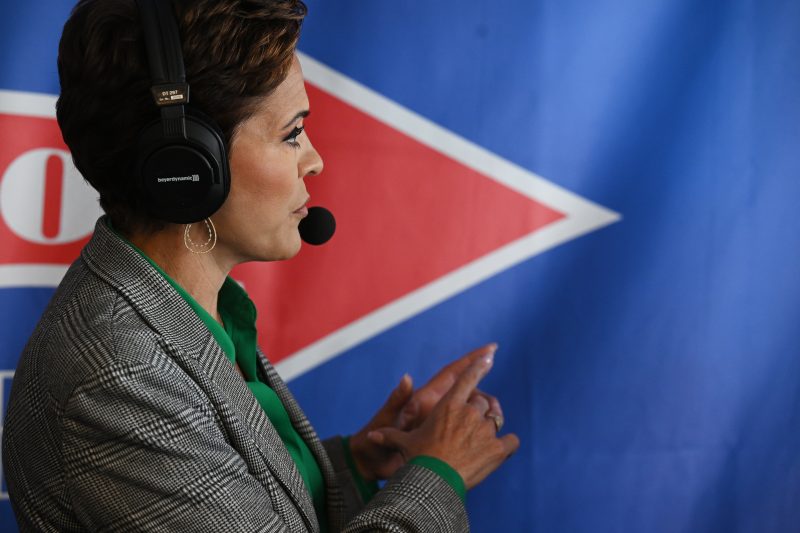The poll aggregation and evaluation site 538, part of ABC News, dropped the right-wing polling firm Rasmussen Reports from inclusion in its polling averages and forecasts.
The decision comes after months of consideration that broke into public view in June. At that point, G. Elliott Morris, ABC News’s editorial director of data analytics and 538 lead, presented Rasmussen with questions meant to evaluate its objectivity and methodology. Rasmussen published the letter on its website, triggering backlash against 538 in right-wing media — and by Nate Silver, the founder of what was then called FiveThirtyEight. No change was implemented.
As time passed, though, Rasmussen’s inability to meet the standards set by 538 — and two dubious polls conducted for right-wing organizations — eventually led 538 to make the change this week.
Last month, Rasmussen’s assessment of President Biden’s approval rating was included in the site’s average; it no longer is. Searching for “Rasmussen” on 538’s pollster rankings returns only pollster Scott Rasmussen, not the firm he founded and then left.
“It’s a good thing 538 is irrelevant,” Rasmussen Reports vice president of operations Mark Mitchell said in an email to The Washington Post when asked about the change.
For years, Rasmussen’s results have been more favorable for Republican candidates and issues. During the Trump administration, though, the site’s public presence became more overtly partisan, with tracking polls sponsored by conservative authors and causes and a social media presence that embraced false claims that spread widely on the right. At times, Rasmussen’s polls actively promoted those debunked claims, including ones centered on voter fraud.
Last March, for example, Rasmussen released data purporting to show that Republican Senate candidate Kari Lake (R) had won her gubernatorial election in November 2022. The route it took to get to that determination was circuitous and, to put it mildly, atypical. On behalf of the group College Republicans United, Rasmussen asked Arizona voters who they voted for in Lake’s race and, after weighting the results to exit polls — which is unusual — declared that, contrary to the certified tally, Kari Lake had won her race by eight points.
An election of 2.5 million voters is a better indicator of an election outcome than a retrospective question offered to 1,000 Arizonans four months later from a Republican-leaning pollster that is adjusting its results to a metric, exit polls, that is itself weighted to the election results. But Rasmussen trumpeted this revisionist look at the race loudly — including on Stephen K. Bannon’s podcast — as did Trump allies.
This was one trigger for the questions Morris sent to Rasmussen in June.
“[D]oes Rasmussen Reports believe the results of the 2022 Arizona Governor election, as certified by the state’s department of elections, to be fraudulent,” one question asked, “based on the results of a 2023 survey conducted by Rasmussen reports and sponsored by College Republicans, as it stated for Mr Bannon on his programming in April of this year?”
Morris, who had been publicly critical of the pollster previously, asked Rasmussen to respond to several questions about their methodology, including some centered on the Arizona results. (For example: “Since the outcome of the poll does not match the observable election result … [h]ow are you addressing that methodological problem?”) Apparently, instead of answering, Rasmussen made the requests public.
Silver, whose departure from the site was announced in April, took issue with Morris’s approach. He noted in July that Rasmussen’s results were generally average and objected to what he described as a “political litmus test” to which Rasmussen was being subjected. Silver argued that dropping Rasmussen would be warranted had the pollster violated established rules but that Morris was, instead, engaged in what “looks like a fishing expedition.” Morris replied indirectly on social media, arguing that “asking pollsters detailed methodological questions is not (or shouldn’t be!) controversial.”
In November, 538 and ABC News updated its polls policy in advance of a January update to its pollster rankings. Written by Mary Radcliffe and Morris, the new policy stipulated, among other things, that:
A few weeks later, Rasmussen again published dubious poll results on behalf of a right-wing organization. This time, the findings alleged to have uncovered rampant fraud in 2020, including that 1 in 12 Americans had been offered “pay” or a “reward” for their vote. Trump and his allies celebrated the poll; again, the results do not comport with the reality of there being no demonstrable wide-scale vote-buying scheme at the state or national level.
“538 has a clear and thorough set of polling criteria which is published on the website,” an ABC News spokesperson said in a statement to The Washington Post. “When pollsters do not fit the criteria outlined in our policy, they can no longer be included in the statistical model.”
Since 2009, more than a dozen pollsters have been removed from 538′s aggregation. And there are other partisan pollsters still included in 538’s analysis, like Trafalgar Group. But Rasmussen, already viewed with skepticism by 538, failed to meet the standards formalized in November. Their results will no longer be included in the site’s aggregation of research findings it considers reliable.



























